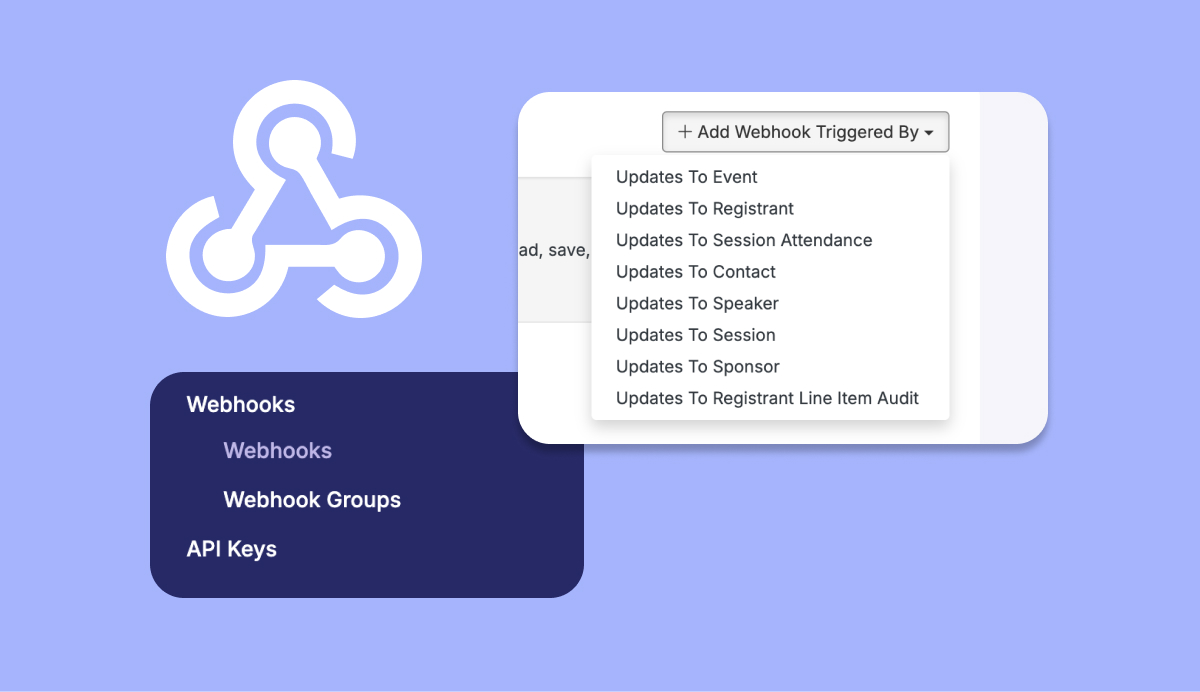October Product Roundup 🚀
All About Webhooks

Webhook Headers. Security upgrade 🔐 You can now assign custom headers to your webhooks. This will enhance security by giving the destination application the option to authenticate your webhook requests, and reject any that don’t have the custom header.
Webhook Groups. Stay organized with groups 🗄️You can keep your long list of webhooks organized in Swoogo by combining them into groups. Groups can also be used to assign a header that will automatically be applied to each webhook in that group–increase efficiency and decrease human error.
New Webhook Triggers. We know you want to stay on top of every detail of your event. Introducing: new triggers for speakers, sessions, and sponsors! Webhooks can be triggered when entries in any of these fields have been created, deleted, or changed. For example, if a session time is changed or a new speaker is added, you can configure a webhook to fire. This way, you always have the most up-to-date information about your event without having to constantly check back manually.
Webhook Disablement + Alerts. Webhook failures can cause problems, especially if you don’t know it’s happening. In Swoogo, if a webhook fails 5 times in ~30 minutes, it will automatically be disabled. Anytime a webhook if disabled, the webhook creator will be notified. If the disabled webhook is part of a group, anyone who is assigned as a notification contact on that group will also be notified.
Multi Factor Authentication Updates 🔑
To maintain the highest level of data security, we’ve implemented stricter Multi Factor Authentication (MFA) policies. Swoogo no longer accepts email-based MFA and now requires the use of an authenticator app (like Google Authenticator, Twilio Authy, or Microsoft Authenticator) or SMS-based authentication. By requiring an authenticator app or SMS, we’re taking a significant step to enhance the security of your account, ensuring that your data is better protected against potential threats.
Learn more about setting up MFA →
